Foreign policy issues cloud Bahrain’s horizon
8 November 2023
 MEED’s December 2023 special report on Bahrain also includes:
MEED’s December 2023 special report on Bahrain also includes:
> Bahrain waits for major infrastructure projects
> Bahrain takes renewables strides
> Bahrain charts pathway to net-zero future
> Bahrain banks have cause for cheer

Bahrain’s Sheikh Khalid bin Hamad al-Khalifa, first deputy chairman of the Supreme Council for Youth & Sports and head of the Bahrain Olympic Committee, flew into Doha on 28 October to watch his compatriots take on Japan in the final of the Asian Men’s Handball Qualification Tournament for the 2024 Paris Olympics.
Sheikh Khalid was welcomed on arrival by Qatar's Sheikh Thani bin Hamad al-Thani in what was another sign of the ongoing process of rapprochement between the two countries, following the 2017-21 boycott of Qatar by Bahrain, the UAE and Saudi Arabia.
The rebuilding of the bilateral relationship has been a slow process. Indeed, Bahraini officials complained on several occasions in 2022 that Qatar had repeatedly declined to take up its offer of talks.
However, the process picked up momentum in early 2023, with several meetings at the headquarters of the Gulf Co-operation Council in Riyadh. In mid-April, the two sides agreed to restore full diplomatic relations, although they have yet to reopen embassies or appoint new ambassadors.
Regional tensions
Other foreign policy issues are causing greater diplomatic headaches these days. As one of the two Gulf countries to sign normalisation deals with Israel, Bahrain has found itself in a difficult position in light of the Hamas attack on Israel on 7 October and the subsequent heavy bombardment of Gaza by Israeli forces.
That issue rose to the fore on 2 November, when the Council of Representatives issued a statement saying the Israeli and Bahraini ambassadors to each other’s country had returned home and there had been a “cessation of economic relations”.
This was initially taken by many commentators to mean that diplomatic relations had been broken off, but the reality appears to be a suspension rather than a formal severance of ties. The Bahrain government subsequently issued a statement confirming its ambassador to Tel Aviv had returned home “some time ago” and the Israeli ambassador to Manama had also left. There had been protests outside the embassy since the Hamas-Israel war began.
In addition, direct flights between Bahrain International airport and Tel Aviv airport “stopped as of several weeks ago”, Manama said.
However, the statement made no mention of diplomatic relations being cut. The Israeli government meanwhile said that bilateral relations were “stable”.
However, there is clear potential for the war to escalate and the Bahrain-Israel relationship to worsen. Speaking at the 10th emergency special session of the UN General Assembly on 1 November, Bahrain’s ambassador to the UN, Jamal Fares al-Ruwaei, warned about the risks that Israel’s bombing of Gaza could radicalise a new generation. “Such scenes of death and destruction can create entire generations filled with accumulated anger and thirst for vengeance,” he said.
The authorities in Manama will be watching closely in case future protests against Israeli actions include explicit challenges to the Bahrain regime itself.
Economic headwinds
On the economic front there have also been challenges. Italian energy major Eni recently pulled out of the offshore Block 1 licence it secured in May 2019. An exploratory well was drilled on the block in mid-2021.
Bahrain has also yet to make any significant progress on the Khaleej al-Bahrain offshore field, which was discovered in April 2018.
In a more positive development, a $7bn upgrade of the Bapco refinery is due to enable a ramp-up of production to about 380,000 barrels a day by mid-2024, which should bolster government revenues, though there have been some reports of delays.
Bahrain’s headline real GDP growth estimate for 2023 has meanwhile been curbed to 2.7 per cent in the latest update from the Washington-based IMF, down from an estimate of 3 per cent in April. This is down from an estimated 4.9 per cent growth in 2023 and comes amid an extension of Opec+ oil production cuts. Real GDP is forecast to rise back to 3.6 per cent in 2024.
Although high oil prices have bolstered the country’s fiscal position over the past two years, the government has also had to continue trimming public spending to bring its budget closer to balance. In 2023, Bahrain is running an estimated fiscal deficit of 5 per cent of GDP.
Capital Intelligence sovereign analyst, Dina Ennab, predicts the budget deficit will fall to 5 per cent of GDP in 2023, compared to 6.1 per cent in 2022. It could fall further, to 3.6 per cent of GDP by 2025, “provided the government continues to contain public spending and improves revenue mobilisation”, she wrote in a mid-October ratings review.
This is still a far larger deficit than the government has been aiming for. In early June, the government issued its two-year budget for 2023-24 and said it was targeting a deficit of less than 1 per cent of GDP in 2024.
Under the Fiscal Balance Programme launched in 2018, the government had initially aimed to balance its books by 2022, but the year before that deadline – and amid the Covid-19 pandemic and lower oil revenues in 2021 – it pushed the target date back to 2024.
The government’s forecast revenues of BD3.1bn ($8.2bn) in 2023 and BD3.5bn in 2024 are based on a conservative target of oil prices averaging $60 a barrel. The IMF estimates that the country will need an oil price of $108.3 a barrel to balance its budget this year, falling to $96.9 a barrel in 2024 – both figures are by far the highest in the GCC.
Should instability spread around the region, there could be the sort of spike in oil prices that would, in theory, bring the budget into balance, but the wider geopolitical and macroeconomic consequences would almost certainly be broadly negative for Bahrain and neighbouring countries.
Image: Sheikh Khalid bin Hamad attends Olympiad qualifier in Doha. Credit: Bahrain News Agency
Exclusive from Meed
-
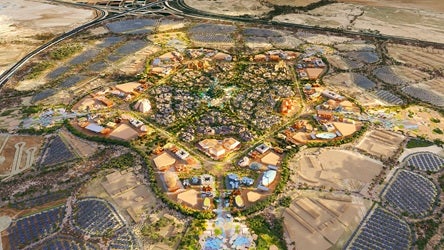 Riyadh seeks contractors for Expo 2030 buildings
Riyadh seeks contractors for Expo 2030 buildings24 February 2026
-
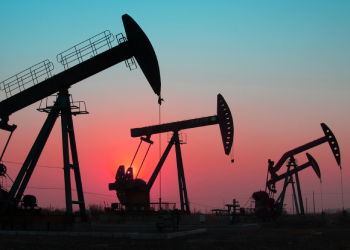 Kuwait considers cancelling $988m upstream tender
Kuwait considers cancelling $988m upstream tender24 February 2026
-
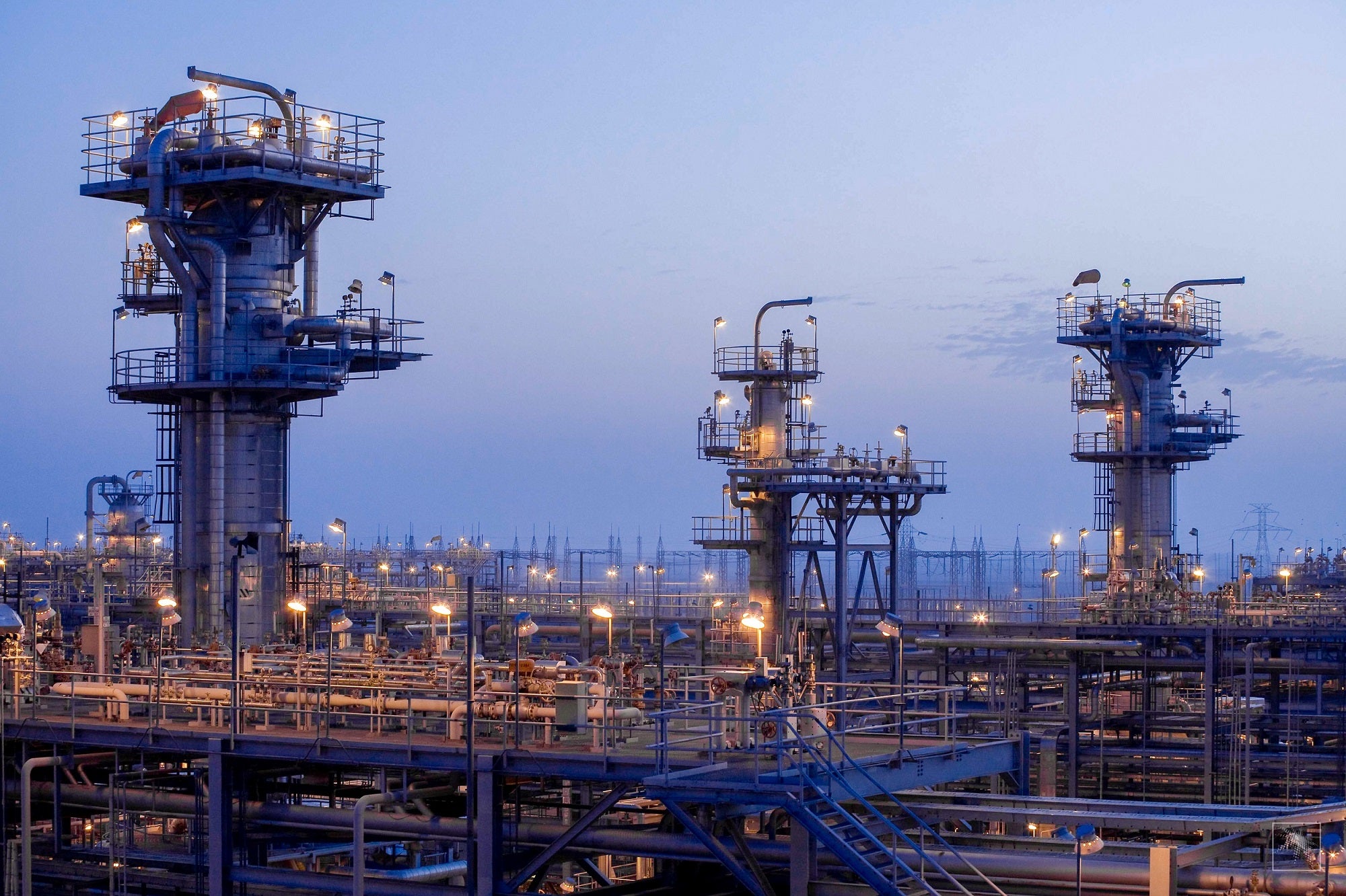 Contractors express interest in Bab gas cap main plant
Contractors express interest in Bab gas cap main plant23 February 2026
-
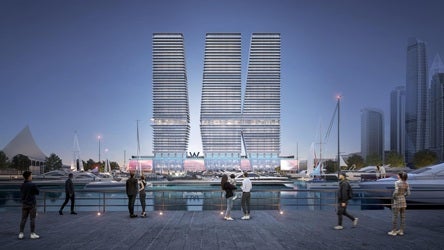 Arada awards $408m W Residences Dubai Harbour contract
Arada awards $408m W Residences Dubai Harbour contract23 February 2026
-
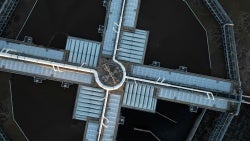 Local contractor selected for Kuwait water project
Local contractor selected for Kuwait water project23 February 2026
All of this is only 1% of what MEED.com has to offer
Subscribe now and unlock all the 153,671 articles on MEED.com
- All the latest news, data, and market intelligence across MENA at your fingerprints
- First-hand updates and inside information on projects, clients and competitors that matter to you
- 20 years' archive of information, data, and news for you to access at your convenience
- Strategize to succeed and minimise risks with timely analysis of current and future market trends

Related Articles
-
 Riyadh seeks contractors for Expo 2030 buildings
Riyadh seeks contractors for Expo 2030 buildings24 February 2026

Saudi Arabia’s Expo 2030 Riyadh Company (ERC), tasked with delivering the Expo 2030 Riyadh venue, has invited contractors to express their interest in a contract to deliver the first set of buildings at the site.
The structures include several exhibition assets, an auditorium, food and beverage spaces, retail and other associated facilities.
The buildings will be located on the main boulevard.
Firms have been allowed until 26 February to express their interest in the contract.
Tendering activity is gathering pace for several other packages that are part of the Expo 2030 masterplan. Earlier this month, MEED exclusively reported that ERC had tendered a contract for the construction of site offices required for the initial construction works.
This followed the Royal Commission for Riyadh City issuing a design-and-build tender on 5 February for the construction of a new metro station serving the Expo 2030 site.
The station will be located on Line 4 (Yellow Line) of the Riyadh Metro network.
Construction work on the Expo 2030 Riyadh site is progressing at an accelerated pace. In January, ERC awarded an estimated SR1bn ($267m) contract to deliver the initial infrastructure works at the site.
The contract was awarded to local firm Nesma & Partners.
The scope of work covers about 50 kilometres of integrated infrastructure networks, including internal roads and essential utilities such as water, sewage, electrical and communication systems, and electric vehicle charging stations.
Contractors are also bidding for infrastructure lots two and three. In December, MEED reported that ERC had floated another tender for the project’s initial infrastructure works.
The masterplan encompasses an area of 6 square kilometres, making it one of the largest sites designated for a World Expo event. Situated to the north of the Saudi capital, the site will be located near the future King Salman International airport, providing direct access to landmarks within Riyadh.
Countries participating in Expo 2030 Riyadh will have the option to construct permanent pavilions. This initiative is expected to create opportunities for business and investment growth in the region.
The expo is forecast to attract more than 40 million visitors.
In a statement, Saudi sovereign wealth vehicle the Public Investment Fund said: “During its construction phases, Expo 2030 Riyadh and its legacy are projected to contribute around $64bn to Saudi GDP and generate approximately 171,000 direct and indirect jobs. Once operational, it is expected to contribute approximately $5.6bn to GDP.”
https://image.digitalinsightresearch.in/uploads/NewsArticle/15741954/main.jpg -
 Kuwait considers cancelling $988m upstream tender
Kuwait considers cancelling $988m upstream tender24 February 2026

State-owned Kuwait Petroleum Corporation (KPC) is discussing the potential cancellation of a contract worth nearly $1bn, according to industry sources.
The contract is focused on developing Jurassic Light Oil (JLO) export facilities and upgrading the existing export network.
India’s Larson & Toubro submitted a low bid of $988m for the contract in October last year.
The two bids submitted for the contract were:
- Larsen & Toubro (India): KD303.5m ($988m)
- Petrofac (UK): KD310.6m ($1.01bn)
The project was originally tendered in November 2024, with a bid deadline of 1 December the same year.
The bid deadline was extended several times before bids were ultimately submitted.
The client on the project is the state-owned upstream operator Kuwait Oil Company (KOC).
One source said: “KOC has decided to let KPC take the decision, as it was launched as a KPC initiative project in 2019.
“The KOC committee is waiting for KPC to schedule the meeting.”
Another source said: “Everyone knows that this project is at risk of cancellation as the bids came in extremely high compared to the budget.
“They came in at more than double the project’s proposed budget.”
The latest discussions around the potential cancellation of the JLO contract come after four upstream contracts worth a total of $7.73bn were cancelled in January.
The cancelled contracts were:
- Separation Gathering Centre (SGC) 1 and Water Injection Plant (WIP) 1
Low bidder: Tecnicas Reunidas (Spain) – $2.47bn
- SGC 3 and WIP 3
Low bidder: Larsen & Toubro (India) – $2.48bn
- Effluent Water Disposal Plants (EWDP) 1 & 2 expansion project
Low bidder: Larsen & Toubro (India) – $1.30bn
- Installation of WIP 4
Low bidder: Petrofac (UK) – $1.48bn
All of the projects received low bids that exceeded their allotted budgets.
In 2025, Kuwait recorded its highest total annual value for oil, gas and chemicals contract awards since 2017, according to data from regional project tracker MEED Projects.
A total of 19 contract awards with a combined value of $1.9bn were awarded last year.
This was more than four times the value of contract awards in the same sectors in 2024, when awards totalled just $436m.
It was also above the $1.7bn peak recorded in 2021, but it remained well below the contract award values seen in 2014-17, when several large-scale, multibillion-dollar projects were awarded in the country.
The surge in the value of contract awards in 2025 came after Kuwait’s emir indefinitely dissolved parliament and suspended some of the country’s constitutional articles in May 2024.
Prior to the suspension of parliament, Kuwait suffered from very low levels of project awards for several years amid political gridlock and infighting between the cabinet and parliament.
This meant that important decisions about projects could not be made, something that was seen as a major obstacle for the progression of strategic oil projects.
https://image.digitalinsightresearch.in/uploads/NewsArticle/15721142/main.png -
 Contractors express interest in Bab gas cap main plant
Contractors express interest in Bab gas cap main plant23 February 2026

Contractors have expressed interest to Adnoc Gas in participating in the main tendering exercise for a project involving the development of infrastructure to process incremental gas output arising from the unlocking of gas caps at the Bab onshore hydrocarbons development in Abu Dhabi.
As part of its 2030 upstream production increase goals, Abu Dhabi National Oil Company (Adnoc Group) is working to extract gas from four underdeveloped gas cap reservoirs at the Bab onshore field development – Thammama A, Thammama B, Thammama F and Thammama H. While the Thammama A, B and H reservoirs are estimated to collectively produce 1.45 billion cubic feet a day (cf/d) of gas, output from the Thammama F gas cap is expected to be at a rate of 396 million cf/d.
Existing trains at the Habshan processing complex in Abu Dhabi will be unable to handle the new gas volumes. Therefore, Adnoc Gas needs to build new facilities to process an additional volume of up to 1.85 billion cf/d of raw gas when its parent company starts production from the Bab gas caps.
To this end, Adnoc Gas is planning to build a gas processing plant in the Bab area, about 170 kilometres from Abu Dhabi, along with associated pipeline networks and other ancillary units, as part of the broader Bab gas cap development project. It has divided the engineering, procurement and construction (EPC) scope of work on the project into four packages:
- EPC package 1 – Main Bab gas cap plant
- EPC package 2 – Early civil works
- EPC package 3 – Pipelines
- EPC package 4 – Non-process area works
Abu Dhabi Securities Exchange-listed Adnoc Gas issued an expressions of interest (EoI) document to contractors for the main EPC tendering process for the main Bab gas cap plant on 10 February, setting an initial deadline of 17 February for submission of EoI responses, MEED recently reported.
Adnoc Gas then extended the deadline for the submission of responses until 20 February, with contractors complying by that date, according to sources.
The other three packages remain in the EoI and the main contract tendering stages, the sources said.
Prior to issuing the EoIs for the Bab gas cap development project packages, Adnoc Gas completed an early engagement process with contractors in September and October last year, as MEED previously reported.
In December last year, Adnoc Gas awarded the front-end engineering and design (feed) works for the Bab gas cap development project, which will increase its gas processing capacity by about 20%, to Australia-based consultancy Worley. The feed contract has a duration of more than 1.2 million man-hours, making it the largest-ever engineering job awarded by Adnoc Gas.
Adnoc Gas currently has a capital expenditure (capex) commitment of $20bn for the 2023-29 period, which is on course to increase to about $28bn as the company strives to achieve financial investment decision (FID) on the second and third phases of its rich gas development programme in the first quarter of 2026.
The second and third phases involve building a natural gas liquids fractionation train at the Ruwais gas processing facility and a new gas processing train at the Habshan complex, respectively, Peter Van Driel, the company’s chief financial officer, said recently on a call with journalists.
Adnoc Gas’ capex commitment could exceed $30bn when the company is able to achieve FID on the Bab gas cap development project, which is currently expected to happen later this year, Van Driel further said.
https://image.digitalinsightresearch.in/uploads/NewsArticle/15717536/main3120.jpg -
 Arada awards $408m W Residences Dubai Harbour contract
Arada awards $408m W Residences Dubai Harbour contract23 February 2026
Register for MEED’s 14-day trial access
Sharjah-based real estate developer Arada has awarded a AED1.5bn ($408m) contract for the main construction works on its W Residences project at Dubai Harbour.
The contract was awarded to the local Engineering Contracting Company.
The development comprises 490 branded residences across three towers.
The project's enabling works, including excavation and piling, have begun and are being carried out by another local firm, APCC Piling & Marine Contracting.
Arada has awarded APCC a separate AED51m ($14m) contract to undertake the enabling works.
The development will consist of residential, retail and leisure facilities and will be operated by US-based Marriott International.
Arada launched the project in October 2024, as MEED reported.
The latest contract award follows Arada's award of two contracts, worth AED2.7bn ($735m), for construction work on all four phases of the Masaar 2 residential community in the Rowdat district of Sharjah.
Arada awarded Sharjah-based Intermass Contracting a contract for the construction of phases one, three and four.
Abu Dhabi-based contractor Pivot Engineering & General Contracting won a contract to build the second phase of the project.
The overall scheme encompasses the construction of 1,997 residential units across all four phases.
Construction is expected to begin shortly, and the project is slated for completion by 2028.
Arada is the developer behind three masterplanned residential communities in Sharjah. The Aljada, Masaar and Nasma Residences communities are valued at a combined AED33bn.
https://image.digitalinsightresearch.in/uploads/NewsArticle/15717440/main.jpg -
 Local contractor selected for Kuwait water project
Local contractor selected for Kuwait water project23 February 2026

Local firm United Gulf Construction has been selected for a contract to upgrade the Hawally water distribution complex in Kuwait's Hawalli Governorate.
The Ministry of Electricity, Water & Renewable Energy (MEWRE) has requested approval from the Central Agency for Public Tenders (Capt) to award the contract to the lowest bidder.
The request was made at a meeting on 11 February, following completion of the project’s preliminary budget.
According to regional project tracker MEED Projects, United Gulf Construction submitted the lowest of three bids for the contract in March 2025.
These were:
- United Gulf Construction – $137m
- Khalid Ali Al-Kharafi & Brothers – $147m
- Alghanim International General Trading & Contracting – $219m
The project involves development of the existing water distribution complex in Hawalli. Works include construction of distribution facilities, valve chambers, thrust blocks, manholes and associated infrastructure.
The scheme is intended to increase freshwater storage capacity by 66 million gallons a day. It will also raise potable water pumping capacity to 54.5 million gallons a day and brackish water pumping to 23.5 million gallons a day.
The Hawally complex serves one of Kuwait’s most densely populated governorates. The upgrade is expected to address chronic low water pressure, particularly during peak summer demand, and ensure continuous supply.
At the recent meeting, the MEWRE provided the required approval letter from the Finance Ministry, which is a legal prerequisite for tender decisions.
Capt’s board instructed the MEWRE to select the lowest bidder and submit a final recommendation within 10 working days.
Construction on the project is expected to start in September 2026 and take about two years to complete.
https://image.digitalinsightresearch.in/uploads/NewsArticle/15717372/main.jpg


